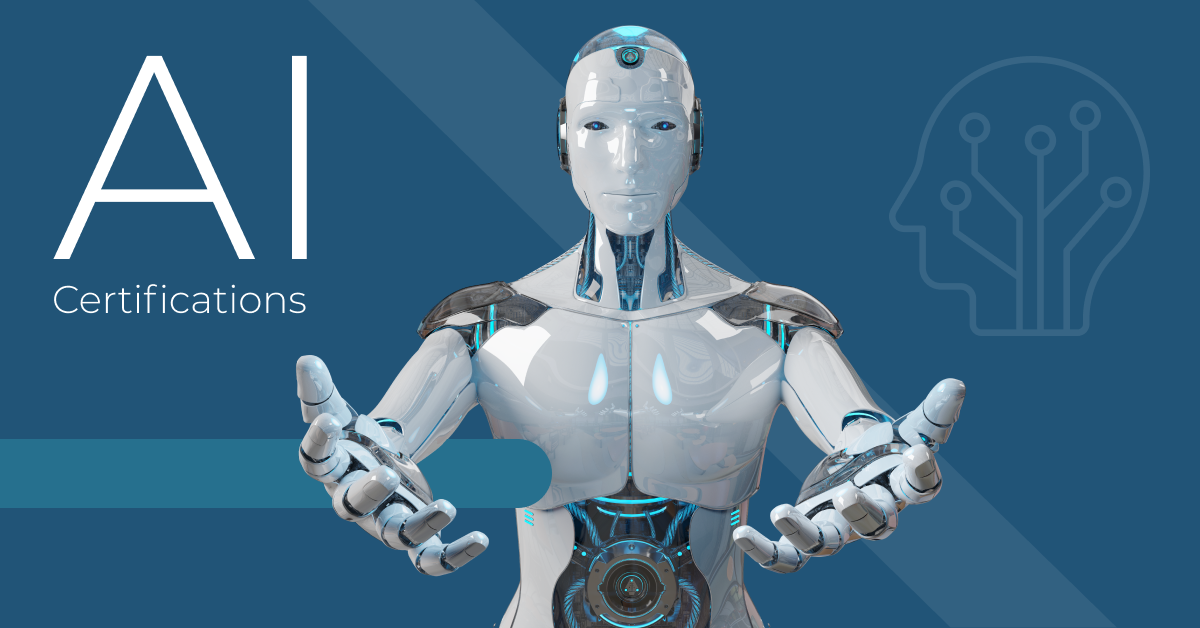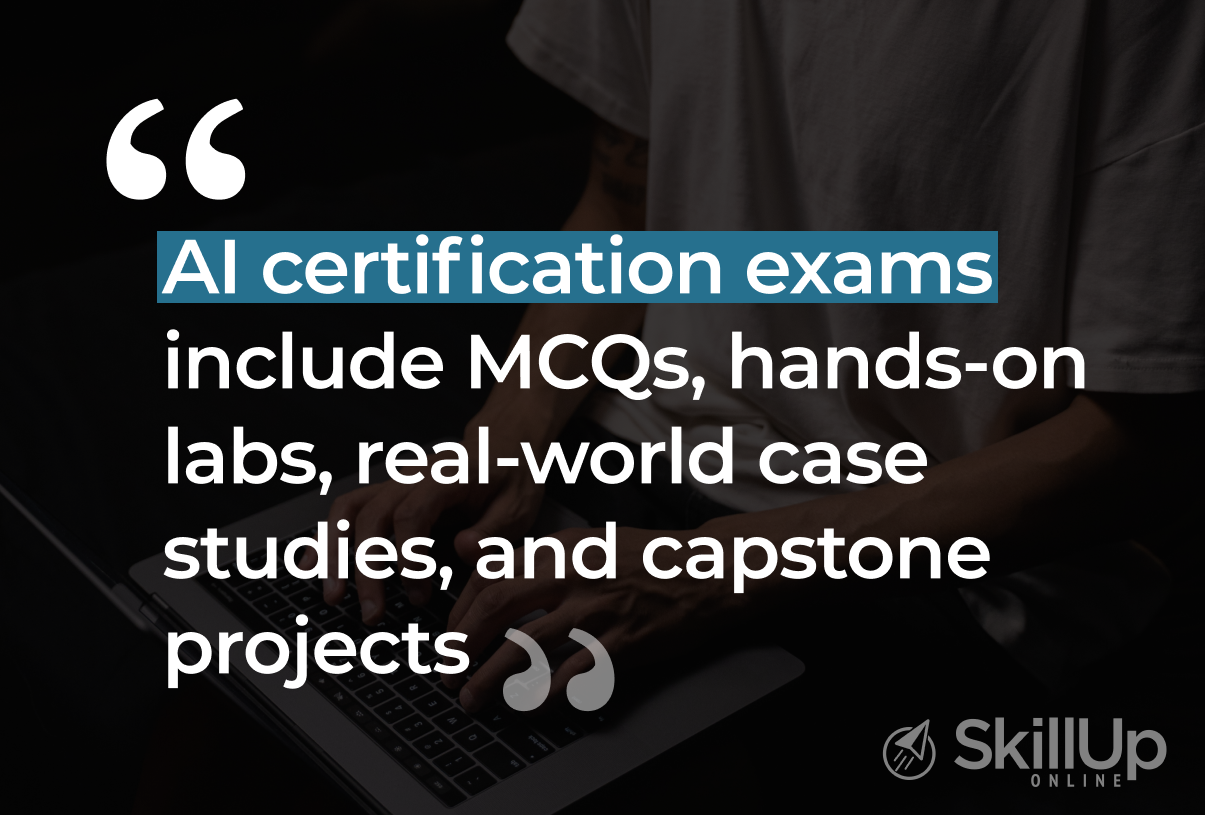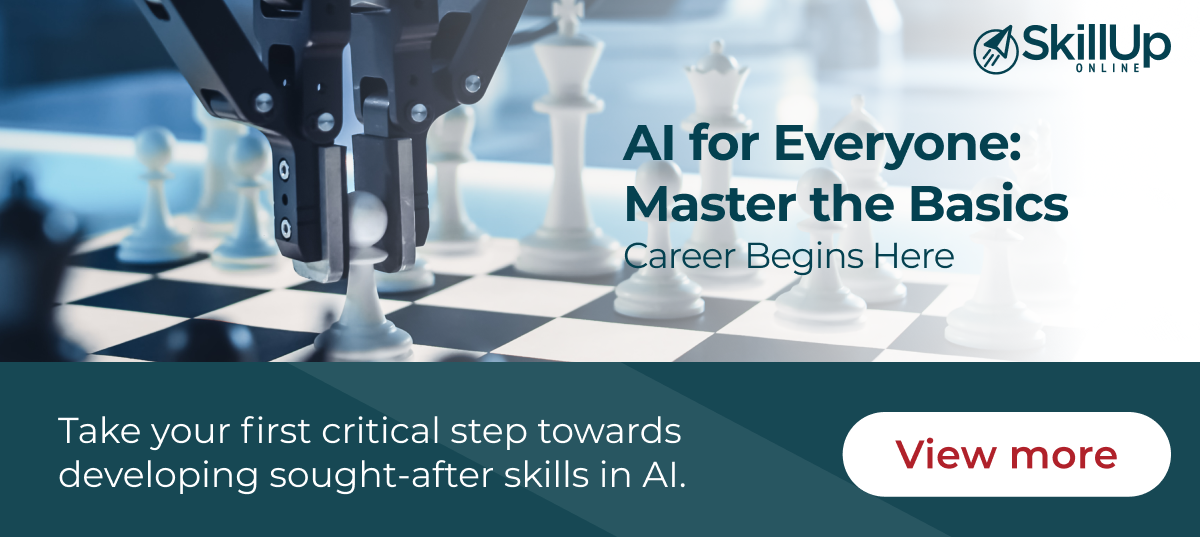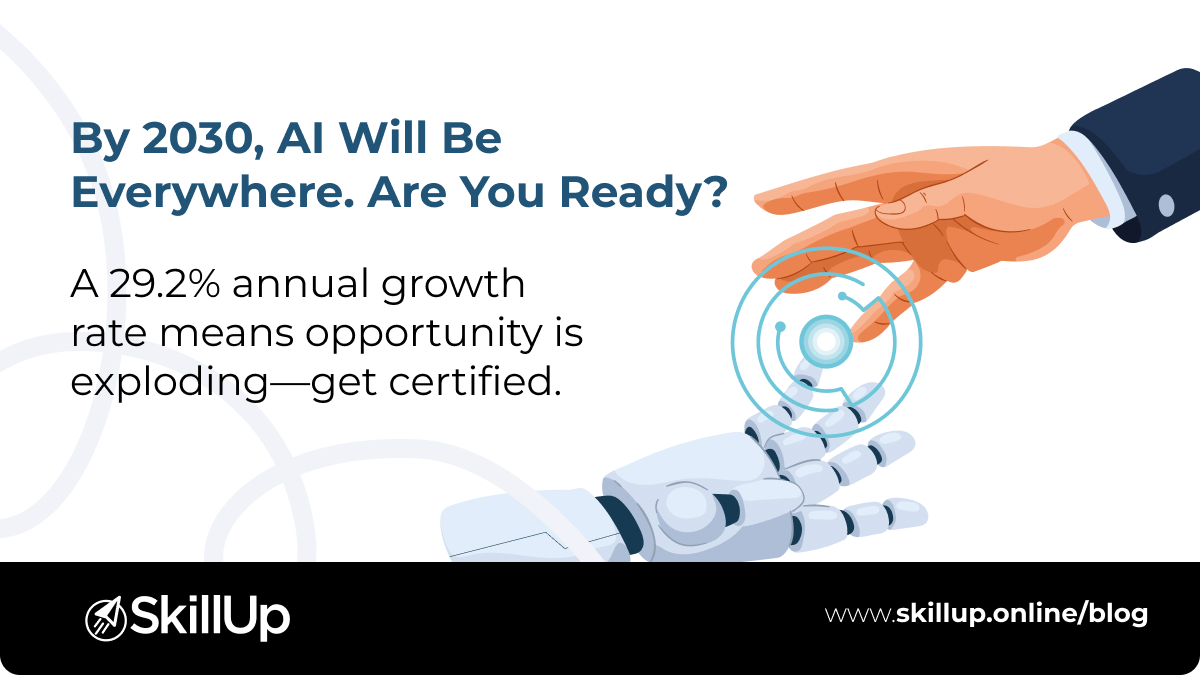In today’s rapidly evolving tech landscape, staying competitive in the job market is crucial. Artificial intelligence (AI) has emerged as a game-changer, revolutionizing industries across the board. For U.S. professionals seeking to advance their careers, embracing AI is not just an option but a necessity.
In this blog, we will share important tips and suggestions that can go a long way in helping you prepare and master your AI certifications. We understand that certifications can be tough, but our mission is to simplify the process for you. Whether you’re just starting or looking to upskill, we’ve got you covered.
Understanding AI Certification Exams
Importance of AI Certification Exams
AI certification exams are your ticket to career advancement. They validate your expertise and can be your competitive edge in the job market. These exams typically consist of questions or tasks assessing your knowledge and skills in various AI domains. Understanding their structure is the first step towards success.
Common Exam Formats: Multiple Choice, Labs, and Case Studies
AI certification exams come in various formats, including multiple-choice questions, hands-on labs, real-world case studies, capstone projects, etc.
Multiple Choice Questions (MCQs)
Multiple-choice questions are common in AI certification exams. In this format, you are presented with a question followed by several answer options. Your task is to select the correct answer from the provided choices.
Here’s how to approach MCQs effectively:
- Carefully read the questions and answer choices.
- Eliminate obviously incorrect options first.
- Consider each remaining option thoughtfully before selecting the most suitable answer.
- Be cautious of trick questions that may appear correct at first glance.
Hands-On Labs:
Hands-on labs are practical exercises that assess your ability to apply AI concepts and techniques in a real or simulated environment. You’ll typically be given access to AI tools, datasets, or software and asked to complete specific tasks or solve problems.
Tips to perform hands-on labs:
- Familiarize yourself with the lab environment before starting.
- Read the instructions thoroughly to understand the objectives.
- Follow a systematic approach and document your steps.
- Pay attention to details, as labs often require precise execution.
Real-World Case Studies
Real-world case studies present practical scenarios or business problems requiring AI solutions. You’ll need to analyze the situation, propose a suitable AI strategy, and often provide a detailed implementation plan.
Considerations for case studies and capstone projects:
- Read the case study carefully to grasp the context and challenges.
- Identify the key issues and goals of the case.
- Develop a structured approach to solving the problem, including data analysis, model selection, and evaluation.
- Present your solution clearly and justify your choices.
Each exam format tests different aspects of your AI knowledge and skills.
Preparation Tools: Books, Courses, and More
Official Study Materials: The Gold Standard
Official study materials provided by certification bodies are considered the gold standard for AI certification preparation. These materials are meticulously curated to cover all the necessary topics and are aligned with the exam objectives. Here are some recommended AI certification study materials:
For AWS Certified Machine Learning – Specialty:
- Official Study Guide: AWS Certified Machine Learning – Specialty Study Guide
- AWS Whitepapers: AWS Whitepapers
- AWS Documentation: AWS Documentation
For Microsoft Certified: Azure AI Engineer Associate:
- Official Exam Guide: Microsoft Certified: Azure AI Engineer Associate
- Microsoft Learning Path: AI-102 Designing and Implementing an Azure AI Solution
For Google Cloud Professional Machine Learning Engineer:
- Official Study Guide: Google Cloud Professional Machine Learning Engineer Study Guide
- Google Cloud Documentation: Google Cloud Documentation
Online Courses: A Flexible Learning Path
Online courses offer flexibility and comprehensive coverage of AI topics. Consider enrolling in courses that align with your certification goals. Here are some recommended AI certification online courses:
SkillUp Online AI Courses:
Python for AI and Development Project Learn the fundamental programming skills required for artificial intelligence development and apply them to real-world projects.
Deep Learning with TensorFlow Dive deep into the world of deep learning and harness the power of TensorFlow to create advanced AI models.
AI for Everyone: Master the Basics Gain a comprehensive understanding of the basics of artificial intelligence, suitable for beginner level.
Community Resources: Forums, Groups, and Mentorship
Building a network of support is invaluable in your AI certification journey. Engage with online forums, AI interest groups, and mentorship opportunities. Here are some community resources to consider:
Stack Overflow – AI Section: Access a dedicated section on Stack Overflow for AI-related questions, where experts and enthusiasts collaborate to solve AI programming challenges.
LinkedIn AI Groups: Join specialized LinkedIn groups focused on artificial intelligence to connect with professionals, share insights, and stay updated on AI trends and discussions within the industry.
AI Mentorship Programs: Explore mentorship opportunities offered by AI organizations and universities.
Leveraging these preparation tools, including official study materials, online courses, and community resources, will enhance your AI certification readiness.
Effective Study Techniques
Spaced Repetition: Remember More in Less Time
Spaced repetition is a learning technique based on distributing study material over time rather than cramming all at once. Here’s how it works:
- Optimal Timing: Spaced repetition algorithms determine the ideal intervals at which you should review information. Initially, you revisit the material shortly after learning it, then gradually increase the intervals as you demonstrate mastery.
- Efficient Memory Retention: This technique capitalizes on the psychological spacing effect, which shows that information is better retained when reviewed at spaced intervals. It helps you remember AI concepts more effectively, making long-term retention easier.
- How to Incorporate: Consider using dedicated apps like Anki or Quizlet to use spaced repetition. These tools use algorithms to schedule when you should review flashcards or study material. The key is to be consistent with your reviews.
Active Recall: Beyond Passive Learning
Active recall is a learning method where you actively stimulate your memory during the learning process. Here’s how it enhances your study sessions:
- Engagement: Instead of passively rereading notes or textbooks, actively recall information. This can involve self-testing by trying to recall concepts from memory or explaining them as if you were teaching someone else.
- Strengthening Memory: Active recall strengthens memory pathways. When you actively retrieve information, you reinforce neural connections, making it easier to recall that information later.
- Effective Learning: Studies have shown active recall is more effective than passive review methods. It forces you to confront gaps in your knowledge and actively fill them.
- How to Incorporate: Use flashcards, create quizzes, or teach someone else the material you’re studying. Recalling information actively engages your brain, promoting more profound understanding and retention.
Mind Mapping: Visualizing Complex Topics
Mind mapping is a visual representation technique that helps simplify complex AI concepts. Here’s how it can aid your learning:
- Visual Structure: Mind maps use diagrams to represent ideas and concepts, allowing you to visualize the relationships between different components. This is particularly helpful when dealing with intricate AI topics.
- Organization: Creating a mind map forces you to organize information hierarchically. This structure aids in understanding how different pieces of information connect and build upon each other.
- Creativity: Mind mapping encourages creative thinking and problem-solving. You can use colors, symbols, and images to enhance your understanding and retention of AI concepts.
Here’s a tip to practice mind mapping: start with a central idea or concept and branch out to subtopics. You can use keywords, images, and arrows to connect related ideas. Software tools like XMind or even simple pen and paper can be used for mind mapping.
Incorporating these techniques into your AI certification preparation can significantly enhance understanding and retention of complex concepts. Experiment with each method to find what works best for your learning style and consider combining them for a well-rounded study approach.
Preparing for the Big Day
Practice exams are like rehearsal performances for the main event. Not all practice exams are created equal. Taking practice exams is only half the battle; analyzing your results is equally crucial.
In the final weeks before your AI certification exam, making the most of your time is essential. Preparation doesn’t stop on the day of the exam; it extends to how you approach test day itself. Exam anxiety is common, but it shouldn’t hinder your performance. One way to help reduce stress is to practice deep breathing and relaxation techniques. You could also adopt a positive visualization of you answering questions with ease and successfully completing the exam. Visualizing success can boost your confidence and reduce anxiety.
As you prepare for your AI certification exam, remember that a well-planned approach can make a significant difference in the final weeks.
On the big day, knowing what to expect can ease your nerves. Understanding these logistics ensures a smoother experience. Remember, test anxiety can strike even the most prepared individuals.
You’ll be better equipped to navigate the certification process with a clear understanding of what to expect on test day and how to cope with the post-exam period.
Self-Assessment Quiz and Answer Key
Before embarking on your AI certification journey, assessing your knowledge and readiness is essential. Here’s a self-assessment quiz to help you gauge your proficiency in AI concepts and identify areas that may need further study.
Self-Assessment Quiz Questions:
In how many category processes is artificial intelligence classified?
a) Depends on input nature
b) 5
c) 2
d) 3
Which AI technique focuses on allowing computers to learn from data without being explicitly programmed?
a) Deep learning
b) Machine coding
c) Manual programming
d) Supervised learning
What is the primary function of a neural network in AI?
a) Simulate human neurons
b) Analyze financial data
c) Generate random numbers
d) Perform image recognition
Which programming language is commonly used for AI development?
a) Java
b) Python
c) C++
d) Ruby
What does NLP stand for in the context of AI?
a) Neural language processing
b) Natural learning process
c) Natural language processing
d) New linguistic patterns
What is the Turing test used for in AI?
a) To assess the processing speed of computers
b) To determine if a computer can exhibit human-like intelligence
c) To measure the energy efficiency of AI algorithms
d) To evaluate the cost-effectiveness of AI systems
Which type of AI system can operate without human intervention?
a) Weak AI
b) Strong AI
c) Artificial narrow intelligence (ANI)
d) Artificial general intelligence (AGI)
What is reinforcement learning in AI?
a) A technique for managing AI teams
b) A type of machine learning where agents make decisions through trial and error
c) A method for optimizing AI hardware
d) A strategy for human-AI collaboration
Which of the following is not a real-world application of AI?
a) Image recognition in healthcare
b) Fraud detection in banking
c) Weather forecasting
d) Recipe recommendations in a cooking app
What does the term “bias” refer to in AI and machine learning?
a) The tendency of AI systems to be opinionated
b) A systematic error in AI algorithms that can lead to unfair outcomes
c) The level of complexity in AI models
d) The speed at which AI processes data
Answer Key:
d) 3
a) Deep learning
a) Simulate human neurons
b) Python
c) Natural language processing (NLP)
b) To determine if a computer can exhibit human-like intelligence
a) Weak AI
b) A type of machine learning where agents make decisions through trial and error
c) Weather forecasting
b) A systematic error in AI algorithms that can lead to unfair outcomes
You can use this self-assessment quiz to gauge your AI knowledge and identify areas for improvement as you prepare for your certification journey.
In conclusion, mastering AI certifications is not just about acquiring a credential; it’s about gaining a deep understanding of this transformative field. With dedication and the right resources, you can excel in artificial intelligence.
If you have any questions or need further assistance, contact our Learner Support Team at [email protected]. They will be more than happy to guide you on your next steps.
SkillUp Online










